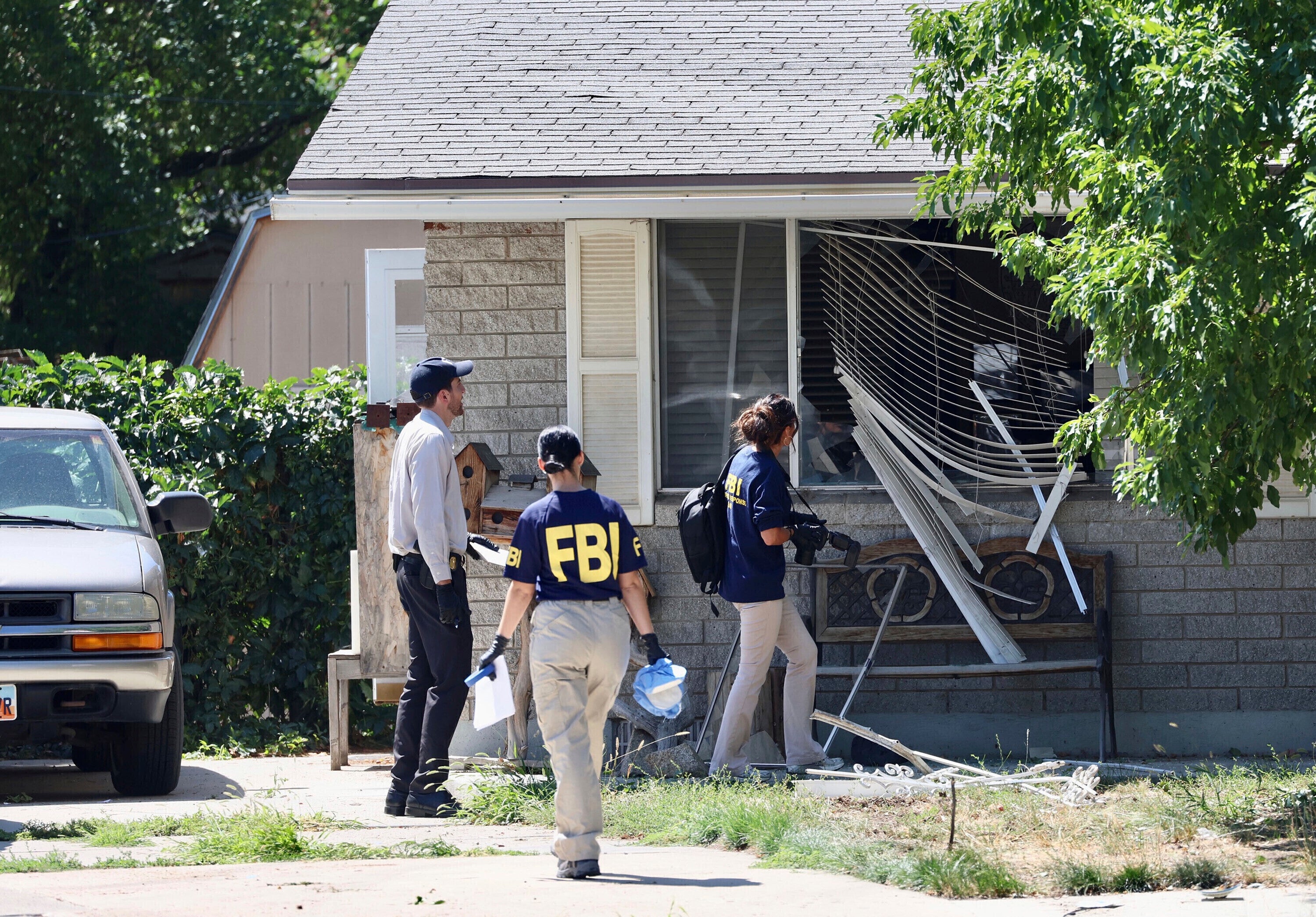Armed Utah man shot by FBI last week carried AR-15 in 2018 police encounter, records show
Police records show a Utah man killed by officers last week as they tried to arrest him for social media threats he made against President Joe Biden and others had a history of frightening people with firearms

A 75-year-old man shot by officers trying to arrest him for social media threats he made against officials including President Joe Biden had a history of "exercising his 2nd Amendment rights, albeit a little recklessly,” according to Utah police records.
Craig Robertson was killed after pointing a revolver at FBI agents who came to his house in numbers last Wednesday. Nearly five years earlier, he brought a handgun into his Provo, Utah, backyard to demand Google Fiber employees working on a utility pole to connect a neighbor's WiFi get off his property, according to a Provo Police incident report obtained by The Associated Press.
His history of carrying firearms when addressing people near his home reflects the difficulties law enforcement can face in assessing threats when those accused of making them are heavily armed.
The Google Fiber employees told police officers that nobody had answered when they tried to ring doorbell earlier to say they would be working on the pole. Later, Robertson came outside with a gun, accusing them of trespassing, they told the police.
“Robertson was yelling at them he was waving his gun around causing the muzzle to point in their direction,” an officer wrote in the August 2018 incident report.
When police subsequently arrived, Robertson answered the door with an AR-15 slung over his shoulder, leading to what an officer described as “a bit of a standoff.” Robertson denied to officers that he had pointed the handgun in anyone's direction.
“While I was speaking with Robertson while he had his rifle, I observed that he was holding it in a ready position against his body with his finger on the trigger guard which led me to believe he had trained with firearms and was aware of where his muzzle was and how to control the weapon while moving,” the responding officer said.
Officers consulted the local prosecutor but no charges were filed.
The FBI attempted to arrest Robertson last week in the lead-up to Biden's visit to Utah, where the president gave a speech at a Salt Lake City hospital about expanding veterans benefits. In charging documents, authorities accused Robertson of making threats against Biden, high-profile Democrats and FBI agents, referencing “assassination” and posting pictures of weapons including long-range sniper rifles.
Though family members and neighbors said Robertson’s politics were no secret, they described him as an elderly, homebound man with physical limitations that suggested he posed no danger to anyone he had threatened online.
Unlike prosecutors who painted his threats as credible, they said Robertson was a kind, churchgoing neighbor who modified military-grade firearms as a hobby and mainly used social media to express his views. The police records add additional context to those contrasting pictures.
Robertson's death came as Republicans — who have traditionally touted themselves as the party of law and order — have escalated their attacks on law enforcement and especially the FBI. Experts told the AP that threats had become more common across in an increasingly polarized United States, making the political climate more perilous and policing difficult.
“Things that may have been screamed at the television before now appear widely in public,” said Michael German, a former FBI agent who is now a fellow with the Brennan Center for Justice.
__
AP writer Nicholas Riccardi in Denver contributed reporting.